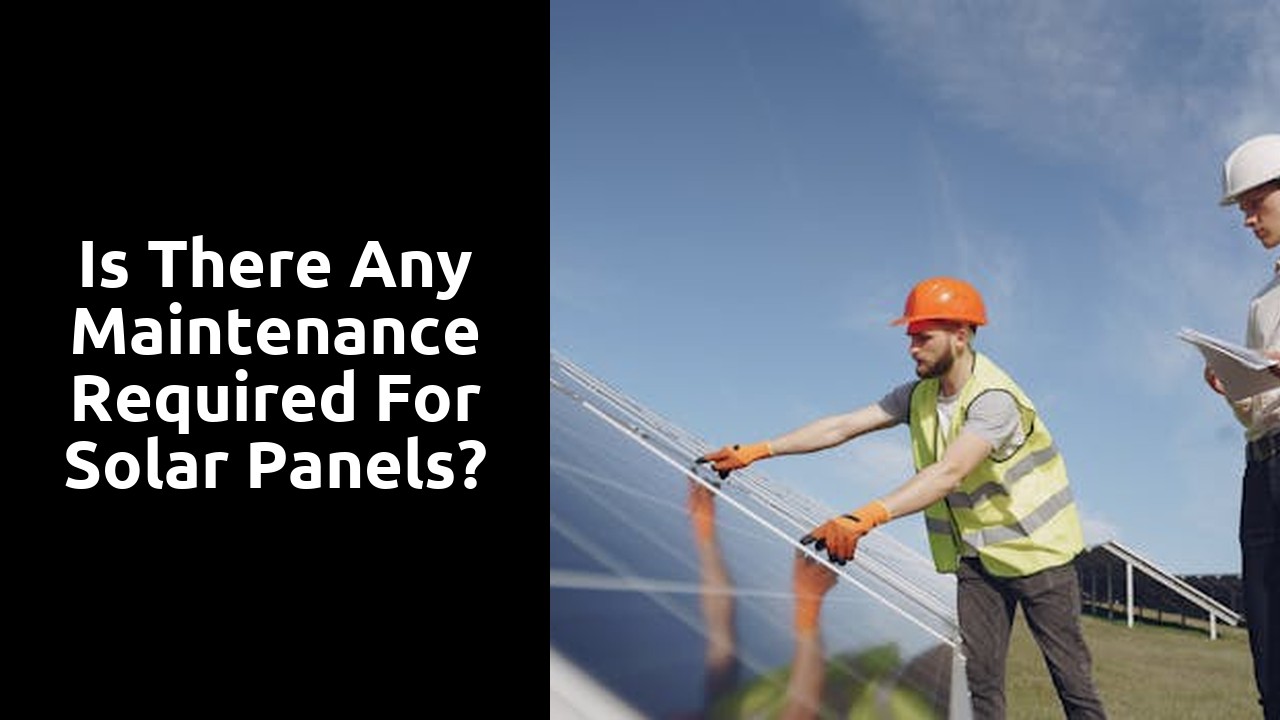 Furthermore, use a multimeter to measure the voltage and current output of the solar inverter. Compare these values to the expected output levels specified in the manufacturer's guidelines. Any significant deviations from these expected values could signify issues with the inverter's internal components. Additionally, checking the connections between the solar panels, inverter, and battery storage system is essential to ensure optimal functionality of the entire solar power setup.
Furthermore, use a multimeter to measure the voltage and current output of the solar inverter. Compare these values to the expected output levels specified in the manufacturer's guidelines. Any significant deviations from these expected values could signify issues with the inverter's internal components. Additionally, checking the connections between the solar panels, inverter, and battery storage system is essential to ensure optimal functionality of the entire solar power setup.Regular maintenance of the mounting brackets is necessary to uphold the efficiency and longevity of the solar inverter system. By conducting routine inspections and addressing any potential problems promptly, you can minimise the risk of malfunctions and breakdowns. Remember, a stable and securely mounted solar inverter is vital for optimal performance and safety. Regular upkeep of the mounting brackets is a fundamental aspect of Solar Inverter System Repair.
me that may obstruct sunlight absorption. Additionally, inspecting the panels for any signs of damage or wear and tear can aid in early detection of potential issues that may affect their efficiency.While some basic maintenance tasks can be done by the homeowner, it is always advised to hire a professional technician for servicing to avoid any risk of damage or injury.
Aside from physical cleaning and inspection, monitoring the performance of your solar panels is key to ensuring they are functioning at their best. Keeping track of daily output levels and comparing them to expected values can help you identify any fluctuations or discrepancies that may indicate a need for maintenance. Additionally, staying informed about weather conditions and how they may impact your solar panels can enable you to take proactive measures to prevent any issues that could arise from seasonal changes. Regular Solar Panel Maintenance will not only maximise the output of your solar panels but also prolong their lifespan, providing you with years of clean, renewable energy.What are the signs that indicate my solar inverter needs servicing?
Common Mistakes to Avoid in Solar Panel MaintenanceSigns that your solar inverter may need servicing include frequent system errors, reduced energy production, unusual noise, or visible physical damage.
One common mistake to avoid in solar panel maintenance is neglecting regular cleaning. It is essential to keep your solar panels clean from dirt, dust, and debris as they can block sunlight and reduce efficiency. Regularly cleaning the panels with a mild detergent and water can help ensure optimal performance.
If you find any loose bolts or screws on the inverter's mounting brackets, tighten them immediately to prevent instability or potential damage.
Another important aspect to keep in mind during Solar Panel Maintenance is avoiding walking on the panels. The glass surfaces of the panels can be quite fragile, and walking on them can cause cracks or other damage that may be costly to repair. Instead, use a soft brush or cloth attached to a long handle to clean the panels from the ground level, ensuring their longevity and optimal performance.How can I check the warranty status of my solar inverter?
Seasonal Considerations for Solar Panel MaintenanceYou can review the warranty status of your solar inverter by checking the manufacturer's documentation or contacting the installation company to verify if it is still under warranty.
Seasonal changes can impact the efficiency of your solar panels, requiring adjustments in your Solar Panel Maintenance routines. In Australia, where weather conditions can vary greatly, it is essential to adapt your maintenance schedule to suit the seasons. What should I do if my solar inverter is no longer under warranty?
During the hot summer months, dust and debris can accumulate on the surface of solar panels more quickly, reducing their effectiveness. Regular cleaning is crucial to ensure optimal performance. On the other hand, in winter, shorter days with less sunlight exposure may affect the energy output of the panels. Monitoring their performance and keeping them free from any obstructions such as snow or fallen leaves is vital for efficient Solar Panel Maintenance throughout the changing seasons.If your solar inverter is no longer under warranty and requires repairs or replacements, you should contact a certified technician for professional assistance.
Adjusting maintenance routines based on weather conditions
When it comes to adjusting maintenance routines based on weather conditions for your solar panels, it's essential to be proactive and mindful. Australian weather can be unpredictable, with scorching hot summers and heavy rainfall, impacting the efficiency of your panels. During summer, consider increasing the frequency of cleaning to remove dust and debris brought by dry winds. Also, keep an eye out for any signs of overheating or damage caused by the intense sun.
